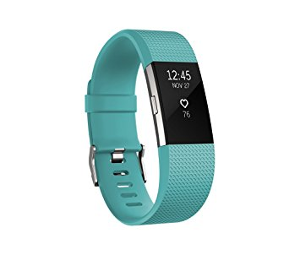FitBit recently announced that it will add new smartwatches and apps to its offerings which focus on overall health, according to multiple reports. The move indicates FitBit’s challenge of expanding its business beyond fitness trackers.
The core revenue generator for FitBit has been the fitness tracker, but in recent months, the company has seen revenue decline as customers look for solutions to help with more than just counting steps and tracking workouts. As a result of the new focus on overall health, the company has partnered with relevant organizations, including those dealing with diabetes, cancer, and other health challenges many Americans face.
FitBit said the new apps and face design will “help people better manage their health, directly from the wrist.”
Partners include diabetes management company Dexcom, oncology management specialist Diplomat Pharmacy, wellness company Humana (Go365) and drug store Walgreens, according to website Mobile World Live.
Another interesting move: FitBit is offering a new smartwatch called “Versa,” which has a more attractive price point at $200 than FitBit’s earlier Ionic at $300. The Versa is also lightweight and compact, water-resistant, and has a long battery life, which has earned it rave reviews.
In addition, FitBit is rolling out an in-app feature for both Versa and Ionic, geared toward female customers. The app helps track menstrual cycles and symptoms such as cramps and acne, including making cycle predictions. It will also provide information about cycles and fertility, as well as offering community support around these topics. The new app has generated a lot of media buzz.
Other apps the company unveiled to help monitor health include Sickweather, a crowdsourcing community for mapping illnesses, and glucose monitoring app Dexcom, according to The Verge.
FitBit’s tracker sales were down 27 percent in the first quarter of 2018, and a 17 percent decline in revenue in the same time period. However, the company hopes that its focus on marketing and research for the smart watch will move things in the right direction to regain market share. Also in the first quarter, Smartwatch revenue represented 30 percent of the total, a significant increase.
The Apple watch has shifted the fitness tracker game to something more substantial, so customers are interested in apps and devices that offer more information on what they are doing – including fitness tracking, eating, and monitoring overall health objectives. Smartwatches also offer more customization and flexibility with monitoring workouts, sleep, diet, and other health habits.
According to reports, Smartwatch revenue is expected to exceed tracker revenue in 2018, both from attracting new users and traditional Fitbit users wanting to upgrade.
Earlier this year, FitBit announced a partnership with Google to ramp up their health capabilities. The latest apps are another extension of the company’s new focus.
